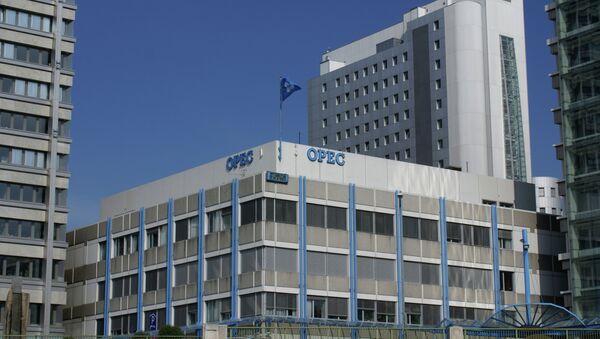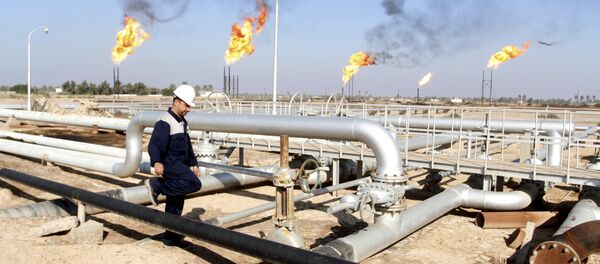NEW YORK (Sputnik) – Members of the Organization of the Petroleum Exporting Countries (OPEC) may need to revise their oil output quotas, with the current situation of overproduction and Iran’s return to the market in mind, Venezuela’s permanent representative to the United Nations said.
"Maybe we need a quota map. Now quotas exist on paper but not in reality. A few countries have [production] over the quotas," Rafael Ramirez told RIA Novosti in an interview.
"I believe OPEC has to discuss how to balance, who will cut. Those who have overproduction, they have to cut. If they cut other countries can recover the level," he argued.
Citing the precedent of conflict-torn Iraq being effectively excluded from the production quota system, Ramirez noted that Iran’s return to the oil market after years of nuclear-related sanctions was "very different."
"They lost at least 2 million barrels of oil in market share. And so they say they have the right to recover it," the diplomat added, arguing that OPEC has to reduce overproduction for Tehran to recover its share of the market.
On February 16, Russia, Saudi Arabia, Qatar and Venezuela held talks on the current oil market situation in the Qatari capital of Doha. They agreed to proceed with an output freezing initiative if other countries followed suit. The proposal was later backed by Ecuador, Algeria, Nigeria and Oman.





